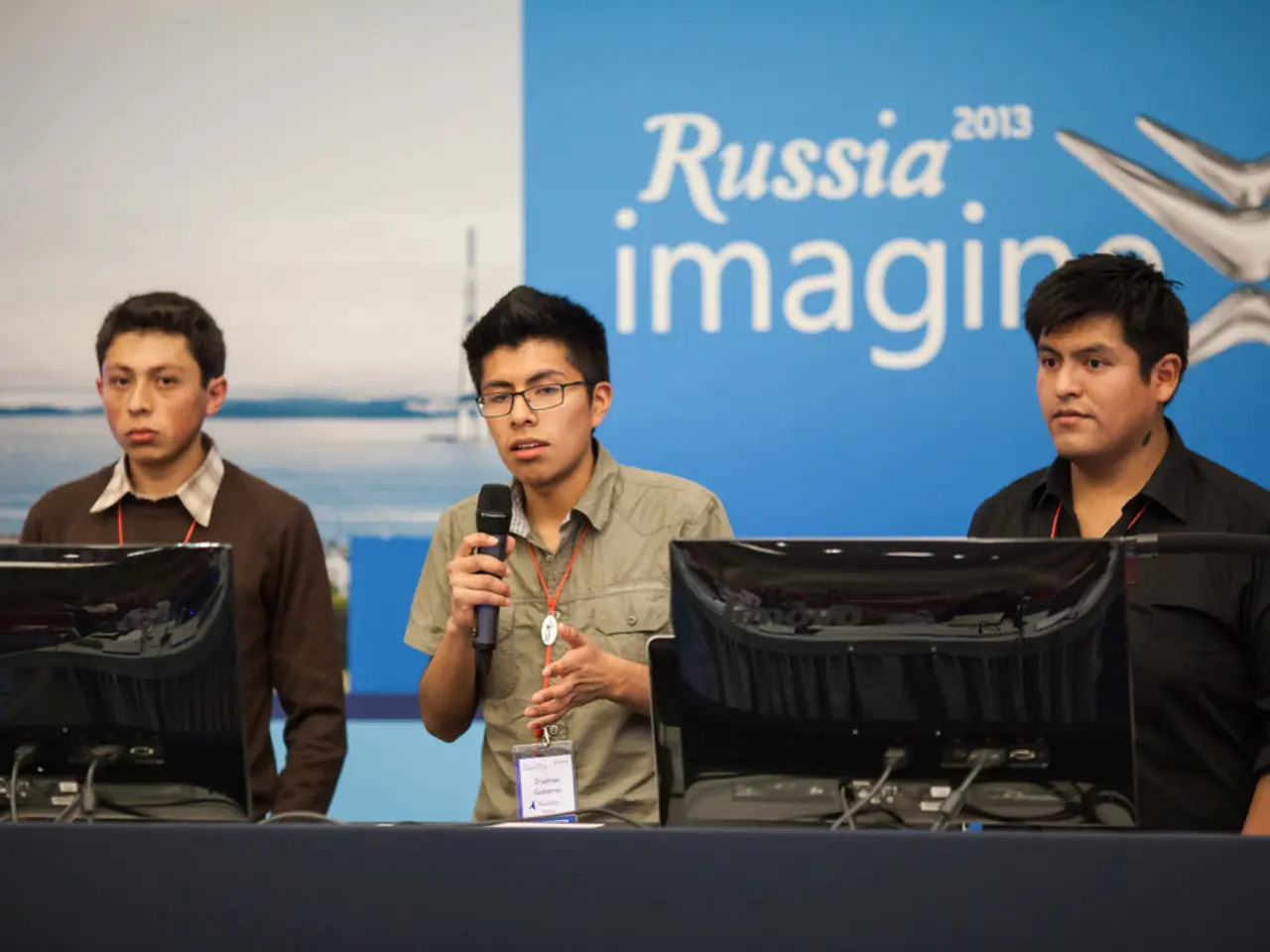Discussion on Riga Security Forum podcast: Exploring the Unique Partnership Between China and Russia
=====================================================================================
In a discussion at the Latvian Institute of International Affairs (LIIA), experts Una Aleksandra Bērziņa-Čerenkova, Alexander Gabuev, and Christopher Robinson examined the evolving strategic partnership between China and Russia and its implications for global security, with a particular focus on the United States' perspective.
The partnership between China and Russia, often referred to as the Comprehensive Strategic Partnership of Coordination, is marked by extensive cooperation in trade, logistics, energy, and technology. However, the partnership is not an alliance, nor is it confrontational or targeted towards a third party, reflecting a desire to present a new form of major power relations.
The cooperation between China and Russia is fundamentally driven by a shared opposition to the US and a desire to challenge U.S.-led world order norms. This is evident in their joint military drills, arms deals, and multi-institutional coordination. Yet, they remain cautious and do not share a fully unified vision of world order or seamless military interoperability.
The economic and military ties between China and Russia exhibit significant asymmetries. Russia, while increasingly dependent on China economically, is wary of losing sovereignty, particularly in relation to technology transfers and strategic autonomy. This fuels underlying tensions despite public displays of "no limits" cooperation.
The impact of this partnership on regional and global security is complex. In regions like East Asia, the increasing US-China competition enhances Russia-China security interactions, though divergences exist elsewhere, such as Central Asia, where their economic visions conflict. This partnership complicates the strategic landscape, presenting challenges for Western and regional security arrangements.
Public sentiment also plays a crucial role in sustaining this relationship. Despite Russia's involvement in conflicts such as Ukraine, there is strong public trust in China towards Russia, adding resilience to bilateral ties.
In conclusion, the China-Russia partnership shapes global security by consolidating a powerful counterweight to U.S. influence, while containing inherent strategic ambivalence, asymmetries, and regional competition that prevent it from becoming a fully integrated alliance. Understanding this nuanced dynamic is key to anticipating future geopolitical alignments and security challenges.
[1] Gabuev, Alexander. "The New Russia-China Partnership: A Counterweight to U.S. Power?" Carnegie Endowment for International Peace, 2020. [2] Robinson, Christopher. "The United States' View of the Russia-China Partnership." Latvian Institute of International Affairs, 2021. [3] Bērziņa-Čerenkova, Una Aleksandra. "The Russia-China Partnership: A Symbiotic Relationship." Journal of Slavic Military Studies, 2021. [4] Gabuev, Alexander. "Russian Public Opinion Towards China: A Shift in Trust." Carnegie Moscow Center, 2020. [5] Robinson, Christopher. "The Impact of the Russia-China Partnership on Global Security." Latvian Institute of International Affairs, 2021.
- The media often covers the evolving partnership between China and Russia, with a general focus on its implications for global politics, especially in relation to the United States' viewpoint.
- Public trust in China towards Russia is significant, as shown in various studies like Una Bezrinanda-Cerenkova's analysis in the Journal of Slavic Military Studies, which underscores the role of public sentiment in the sustaining of this relationship.





